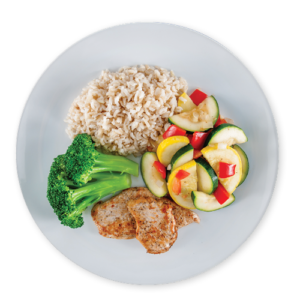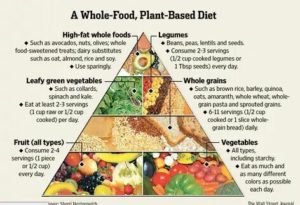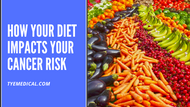How to prevent Cancer: Latest Research Is Shockingly Simple
Written by tyemedical on Feb 21st 2020
It’s National Cancer Prevention Month, and like many of us, you’ve probably wondered how to prevent cancer, especially after hearing about someone else’s diagnosis. We dread hearing the “C” word, and yet it lingers in the back of our minds. Despite our acute awareness these days, we aren’t entirely sure how to be proactive. We hear about the latest and greatest cancer preventing supplements and view social media posts about the newest quick fix for staving off the dreaded illness. So, what should a person do?
You’ll be glad to know you can forget about all the hype and newest marketing ploys. The latest research on cancer prevention uncovers a very strong correlation between lifestyle and cancer. Experts now claim that a healthy weight and a plant-based diet are key to keeping cancer at a distance.
What’s even more amazing is that we can prevent 30-50% of all cancers, According to the American Institute for Cancer Research (AICR). Protect Against Cancer with a Plant-Based Diet
The cancer prevention report, Diet, Nutrition, Physical Activity, and Cancer: A Global Perspective, the Third Report from the World Cancer Research Fund and the AICR, warns us that a low intake of fruits and vegetables puts us at greater risk for this prevalent illness. Researches emphasize a notable increase in supporting evidence that strengthens earlier findings concerning how to prevent cancer with healthier living and dietary changes.
Other than not smoking and keeping a healthy weight, a plant-based diet is the best thing you can do to reduce your cancer risk. In fact, vegetarians (who don’t eat meat) and vegans (who don’t eat any animal products) have the lowest cancer rate of any diet type.
 How Fruits and Veggies Prevent Cancer
How Fruits and Veggies Prevent Cancer
Plants contain phytochemicals that protect cells from damage and are anti-inflammatory. This is key, because inflammation underlies many cancers. A plant-based diet rich in these phytochemicals provides some serious protection in the fight against cancer. In fact, some studies have found that several of these amazing phytochemicals seek toxins and usher them out of the body to prevent cell damage.
Fiber is another key cancer-preventing benefit of a plant-based diet, although researchers are still trying to determine why. It could simply be that people feel fuller and eat less when consuming more fiber through a plant-based diet, and maintaining a healthy weight greatly reduces your risk of cancer. A fiber-rich diet is proven to reduce the risk of certain cancers such as breast and colorectal cancer.
Lastly, we can’t forget about the rich nutrients found in produce. Consuming an adequate quantity of various fruits and vegetables supplies your body with natural vitamins and minerals. Nutrition in its natural form has a notable advantage over the synthetic version of vitamins and minerals taken in pill form. When your body received proper nourishment in a natural form, you’re generally healthier with a more robust immune system. Therefore, your body is better able to heal itself and protect against inflammation, illness, and even cancer.
Not sure you could eat enough produce to get the nutrients you need? No worries. We discuss the benefits of juicing below.
 Plant-Based Diet 101
Plant-Based Diet 101
You don’t have to give up meat and dairy entirely to eat a plant-based diet, however, research suggests that is the best possible option. Most of us have grown up eating the Standard American Diet (SAD) with meat as the center of every meal. Our breakfast foods, snacks, and sauces include lots of eggs and dairy. The rest of our diet includes plenty of white processed carbohydrates and white sugar. When we eat vegetables, we tend overcook them or drench raw vegetables with cheese, croutons, and dairy-based salad dressing.
When learning how to prevent cancer with dietary changes, you’ll need to marginalize meat, dairy, and highly processed foods. According to the American Institute for Cancer Research, the bulk of your plate (about 2/3) should include cooked and/or raw vegetables as well as some whole grains (brown rice, quinoa, barley, buckwheat, or millet), beans, or lentils. If you choose, the other 1/3 of your plant can include seafood, poultry, or dairy foods.Occasionally, you can substitute a small portion of red meat.
AICR recommends eating a minimum of 3.5 to 5 cups of vegetables and fruit each day for general health and cancer prevention.
Try this link for some simple and tasty plant-based recipes to get you started!
Meat and Dairy Aren’t Your Friends
Red Meat and Processed Meat
According to the Cleveland Clinic, and many other sources, red meat is specifically linked to colon, prostate, and pancreatic cancers and is classified as “probably” carcinogenic. The risk increases whenever meat is smoked or grilled. Keep in mind, that we’re talking about your average cut of beef or pork, not processed meats. Processed meats are categorized as a Group 1 carcinogen (a “definite” cause of cancer) along with smoking and alcohol.
Dairy
Did your parents ever tell you not to drink milk or eat yogurt when you had a cold or ear infection? It was wise advice. Integrative medicine doctor, Andrew Weil, M.D., creator of the Anti-Inflammatory Food Pyramid, considers dairy to be one of the foods to limit or avoid for reduced inflammation:
The milk protein, casein, can irritate the immune system and stimulate mucusproduction, worsening allergy symptoms. This is why milk consumption is associatedwith recurrent childhood ear infections, eczema, chronic bronchitis, asthma, and sinusconditions. Even those who are not allergic to milk, like people who have autoimmunediseases or digestive problems, may find that their symptoms improve when theyeliminate milk and milk products. (Read full article.)
As mentioned above, chronic inflammation can lead to cancer and other illnesses. Therefore, reducing or eliminating dairy consumption is an important aspect of understanding how to prevent cancer.
Are you worried about getting enough calcium without dairy? It’s easy to get the calcium you need from fruits, vegetables, soy, nuts, and seeds. Follow this link for a comprehensive list of calcium-rich, non-dairy foods.
How to Boost Your Nutrition with Juicing
A diet rich in fresh fruits and vegetables, both raw and gently cooked, will go a long way toward preventing cancer and other illnesses. But the truth is, most of us will be lucky if we hit the minimum requirement of 3.5-5 cups per day. It’s important to strive for this mark, but in addition, you might want to try juicing your fruits and veggies between meals to boost your nutrition.
Juicing extracts most of the nutrients from the produce and leaves behind the fibrous materials. If you’re eating enough whole fruits and veggies, then drinking fresh juice without the fiber won’t be a problem. In fact, it’s easier for your body to absorb more nutrients from fresh fruit and vegetable juice consumed on an empty stomach.
Juicing Guidelines
- Juice mostly vegetables and add one serving of fruit (i.e. one apple, orange, ½ cup berries)
- Carrots and green leafy veggies make a great base juice.
- Keep serving sizes at 8-10 oz for best nutrient absorption.
- Add half a lemon or lime (peeled) to veggie juice in place of other fruit if you’re juicing more than twice a day.
- Juicing doesn’t replace meals.
- You must still eat plenty of whole fruits and veggies.
- It’s best to juice 30 minutes before a meal or 2 hours after a meal for optimal nutrient absorption.
Other Lifestyle Factors that Impact Cancer Risk
In addition to a plant-based diet, the American Institute for Cancer Research also recommends these lifestyle changes for cancer prevention:
- Maintain a healthy weight
- Be physically active (walk more)
- Limit eating “fast foods”, processed foods high in fat, starches, or sugar
- Limit intake of sugary drinks
- Limit alcohol consumption
For more information, review the AICR recommendations for how to prevent cancer.
 LivDry Products for Active People
LivDry Products for Active People
If you’re striving to live a healthier lifestyle this year, don’t let your incontinence stop you! We provide products for everyone, event those who are more physically active.
When you shop our online store, feel free to message our support team or give us a call. We’re happy to help you select the right product for your needs.
And don’t forget about our free sample packs!

